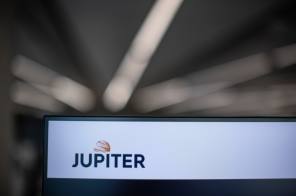

We all know that the older you get, the longer it takes you to recover from life's little indulgences.
Whether it is trying to lose a few pounds after a holiday, or getting through the 'day after the night before', age is not kind.
And, as the manager of this 'best in class' fund pointed out last week, the same can be said for markets. The longer in the tooth they become, the longer the 'investment hangover'.
The manager in question is Ariel Bezalel, and the fund is Jupiter Strategic Bond.
He is never one to pull his punches, and his opening statement at a dinner I hosted last week was: “I'm the most bearish I have been for a decade.”
I'll put my hands up and say I am not a fan of bonds at this stage in the market cycle, but Mr Bezalel is one of the few fixed income managers I would entrust with my clients' money.
Jupiter Strategic Bond has complete flexibility, so the manager has considerable freedom to exploit opportunities across global markets. And he does this very actively.
When he is bullish, the portfolio will be skewed towards high yield and even distressed securities. When he is bearish it will invest more in government bonds and investment grade.
Capital preservation is front of mind and, at times, he is happy to sacrifice yield to achieve this.
Mr Bezalel has demonstrated time and again that he has an aptitude for reading the economic cycle. This, combined with some solid stock picking, and his emphasis on controlling the downside has seen the fund post some exceptional risk-adjusted performance figures, and it is this that sets it apart from many of its peer group.
His starting point is to form a view on the macroeconomic environment, which helps to determine the portfolio’s duration and yield curve positioning.
He will then take a view on the countries and sectors likely to offer the most compelling opportunities. A high degree of emphasis is also placed on individual security selection.
The reason for his current bearishness? “Developed market central banks have been moving in unison for a number of years, with low interest rates and quantitative easing programmes. They are now taking away the punchbowl and the global economy is set for a hangover in 2019,” he said.
Mr Bezalel believes that the structural problems in the world today are worse than they were at the height of the financial crisis.
Corporate debt and debt to GDP is at a higher level and the demographic profile is unfavourable to economic activity - even in some emerging markets.
Added to this is the fact that, a decade ago, there was a co-ordinated global effort to deal with the global financial crisis. Today we are in a much more fractured world, where it's every man for himself.
The US Federal Reserve is continuing along its tightening path and basically saying to emerging markets "it's our currency but your problem".
“Almost every recession in the post-war era has been brought about by the Fed raising interest rates until something breaks,” he said. “Add to this the fact that we have seen two big drops in stock markets this year and yield curves are flattening, and the signs are all there.”
So how is the fund positioned right now?
For starters, the average credit rating is a lot higher than usual: today it is A, whereas it has been BB for most of the last 10 years.
Mr Bezalel likes US Treasuries because he does not think the yield can go much higher and also likes Australian government bonds. “Australia hasn't had a recession for 27 years,” he explained.
“Consumer debt is high and savings rates are low. There have been lax lending practices from the banks and belatedly, they are tightening up their practices, but this means credit is drying up fast. House prices in Melbourne and Sydney are already down about 20 per cent.”
The bonds he holds have durations of about 12 years.
He also has some exposure to short-dated emerging market bonds, where he is finding some great yields on soon-to-mature bonds. An 8 per cent yield on a Sri Lankan bond that expires this coming January, for example.
On the other side of the coin, he's not so keen on US and European high yield and is short a basket of such credits.
“By the end of 2019, quantitative easing methods will have restarted,” he concluded. “Unconventional policies will be with us for a long time to come.”
Darius McDermott is managing director of FundCalibre



